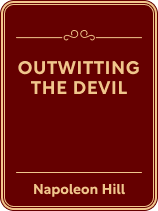

This article is an excerpt from the Shortform book guide to "Outwitting the Devil" by Napoleon Hill. Shortform has the world's best summaries and analyses of books you should be reading.
Like this article? Sign up for a free trial here .
What is the New Thought movement? What are the main beliefs? Is the movement still alive today?
If you’ve read a self-help book, most likely you’ve been exposed to ideas from the New Thought movement. The 19th-century spiritual movement has even found its way into the secular literature of the 21st century—with tenets such as positive thinking and the law of attraction.
Read more for an introduction to the New Thought movement and its ideas.
The New Thought Movement
What is the New Thought movement? The 19th-century spiritual movement grew out of metaphysics and the practices of hypnotists and “mental healers” such as movement founder Phineas Quimby. The core beliefs of the movement were that the mind was in control of the body, that illness was an outgrowth of negative or “false” thinking, and that any sickness could be healed through faith and positive thinking.
Around the turn of the century, the movement’s focus shifted away from healing and toward personal and financial success. New Thought thinkers taught that God rewarded the faithful and that strong belief, rather than government oversight, was the key to lifting people out of poverty. It’s this aspect of the movement that remains most influential today.
Napoleon Hill is largely responsible for introducing New Thought ideas into the self-help genre, where they became incredibly popular. Though Hill never publicly identified as a follower of the New Thought movement, its influence can be seen throughout all his works. Hill’s theories about faith, positive thinking, and failure clearly have their origins in the movement, as does some of the language he uses, such as “Infinite Intelligence” and the “law of attraction.”
New Thought Beliefs
The beliefs that had the greatest impact on Napoleon Hill and, by extension, those influenced by his writings are a personal connection to God, thought healing, the idea that God rewards the faithful, and the law of attraction.
Personal Connection to God
Every person has a personal connection to God or to the universe and is capable of calling upon that connection through prayer. This is a common Protestant belief, and part of a larger debate within Christianity about how much “access” an individual has to God. Is your relationship with God solely dependent on your belief, or do you need to attend church and practice Christian rituals regularly in order to be truly faithful? While the New Thought movement takes the idea of a personal relationship to the extreme, Catholic and Orthodox churches place more emphasis on church attendance and rites.
Thought Healing
Physical ailments or negative circumstances are outgrowths of a person’s mental state and can be changed through the power of directed thought. Christian Scientists share this faith in the power of thought, and will often refuse traditional medicine when injured or sick, believing that God alone has the power to heal them. Although the New Thought movement and Christian Science are not strictly connected, founder of Christian Science Mary Baker Eddy did follow the movement for several years before breaking off to form her own church.
God Rewards the Faithful
God rewards the faithful not just after death, but with material benefits on Earth as well. This is known as prosperity doctrine and plays a role in a number of evangelical movements. While some Christian denominations, such as Quakers and Mennonites, emphasize humility and simple living as the path to godliness, evangelical churches often argue that physical health and prosperity are evidence of God’s love, and so there is no shame in wealth.
The Law of Attraction
The law of attraction can be roughly summarized this way: positive thoughts attract positive outcomes, while negative thoughts attract negative outcomes.
The New Thought Movement Today
The New Thought movement survives today in both spiritual and secular forms. The former consists of organizations such as the Association for Global New Thought, co-founded by the modern self-help author and minister Michael Bernard Beckwith, who wrote the foreword to Napoleon Hill’s Outwitting the Devil. The latter includes self-help authors who teach about the power of positive thinking without an explicitly religious angle, such as Louise Hay, Tony Robbins, and Rhonda Byrne. Many of these modern writers cite Napoleon Hill as an influence.
Criticisms of the New Thought Movement
The New Thought movement has had many critics over the years. Some Christians regard its teachings as heretical, directly contradicting those passages of the Bible that emphasize humility and sacrifice over personal gain—often quoted are Matthew 6:19-20, 1 Timothy 6:7-10, and of course Mark 10:25; “It is easier for a camel to go through the eye of a needle than for a rich man to enter the kingdom of God.” Others argue that the movement’s beliefs are manipulative and toxic in their own right, akin to victim-blaming. After all, if success lies wholly in your own hands, doesn’t that mean that failure is evidence of your own weakness or lack of faith? If God rewards those who work hard, does that imply that those who suffer are undeserving?

———End of Preview———
Like what you just read? Read the rest of the world's best book summary and analysis of Napoleon Hill's "Outwitting the Devil" at Shortform .
Here's what you'll find in our full Outwitting the Devil summary :
- How failure and bad habits keep people from reaching their potential
- How to escape the Devil’s influence and avoid being turned toward inaction
- How to find your way to professional and financial success






